Being a world leader in melanoma research, MIA participates in, and presents projects and discoveries, at international skin cancer and oncology conferences.

June 2024
Click on title to view conference poster.
FDG-PET Associations with Pathological Response and Survival with Neoadjuvant Immunotherapy for Melanoma
Li Zhou, Edward Hsiao, Serigne N. Lo, Matteo Carlino, George Au-Yeung, Maria Gonzalez, Andrew Spillane, Thomas E. Pennington, Julie Howle, Kerwin Shannon, Rony Kapoor, Jonathan Stretch, David E. Gyorki, Robyn P.M. Saw, Sydney Ch’ng, Richard A. Scolyer, Georgina V. Long, Alexander M. Menzies
This study sought to explore associations between change in FDG-PET and either pathological response or recurrence-free survival (RFS).
Neoadjuvant immunotherapy (neoIT) in melanoma; A prediction tool for pathological response and recurrence, and the role of adjuvant (Adj) therapy (Tx) to improve recurrence-free survival (RFS).
Ines Pires da Silva, Piyush Grover, Nurudeen A. Adegoke, Robert Rawson, Andrew Colebatch, Matteo S. Carlino, Serigne N. Lo, Alexander A. Menzies, Richard A. Scolyer, Georgina V. Long
We sought to:
1) Predict patients with non-MPR and at higher risk of recurrence with PD1-based neoIT;
2) Study the role of adjuvant therapy in patients with pNR.
Neoadjuvant pembrolizumab plus lenvatinib in resectable stage III melanoma patients (NeoPele); analysis of tumor microenvironment (TME) correlated to pathological response.
Ines Pires da Silva, Jordan W. Conway, Akshaya Ramanathan, Laura Smith, Robert Rawson, Piyush Grover, Nigel Maher, Jorja Braden, Maria Gonzalez, Umaimainthan Palendira, Alexander A. Menzies, Richard Scolyer, Georgina V. Long
We sought to analyze the immune infiltrate of the tumor-involved LN (i.e. TME) and tdLN from patients achieving major pathological response (MPR: complete [pCR] or near-complete [near-pCR] pathological response) versus non-MPR (partial [pPR] or no [pNR] pathological response).
A Phase 2 study to determine the pathological response to neoadjuvant nivolumab (nivo) and relatlimab (rela) in stage I to III resectable Merkel Cell Carcinoma (Neo-MCC)
M. Gonzalez, A.C.J. Van Akkooi, S. Ch’ng, K.F. Shannon, A.J. Spillane, J. Stretch, M.A. Rtshiladze, T. Pennington, D. Coker, R.P.M. Saw, R. Kapoor, E. Hsiao, R.V. Rawson, M. Osorio, A.M. Menzies, S. Lo, R.A. Scolyer, A.Hong, G.V. Long, I. Pires da Silva
The Neo-MCC trial examines whether combination PD-1 blockade plus lymphocyte-activation 3 (LAG3) checkpoint inhibition will achieve a high rate of pathological complete response with manageable toxicity in patients with resectable stage I-III MCC.

April 2024
Click on title to view conference poster.
Mechanisms of response to anti-PD1 (PD1) combined with Ipilimumab (IPI) in patients (pts) with PD1-resistant metastatic melanoma (MM)
Ines Pires da Silva, Jordan W. Conway, Jarem Edwards, Felix Marsh-Wakefield, Camelia Quek, Angela Fergusson, Peter Johnansson, Matteo S. Carlino, Alexander A. Menzies, James Wilmott, Umaimainthan Palendira, Richard Scolyer, Georgina V. Long
We sought to: (a) identify biomarkers and (b) determine mechanisms of response to IPI+PD1 in PD1 resistant patients.
Development of severe immune related adverse events associated with early B cell changes and altered gut microbial community stability
Rebecca C. Simpson, Erin R. Shanahan, Ines P. Silva, Irene L. M. Reijers, Judith M. Versluis, Alexander M. Menzies, Maria Gonzalez, Umaimainthan Palendira, James S. Wilmott, Christian U. Blank, Richard A. Scolyer, Georgina V. Long
- To assess longitudinal microbiome-immune dynamics during treatment with ICI immunotherapy
- To determine the relationship between the gut microbiome and peripheral immune populations in the context of irAE development
Novel approaches to measuring tumor-mutational burden provide insights into tumor-immune interaction in primary melanoma
ER Shteinman, NG Maher, JW Conway, GH Atrill, F Newell, N Waddell, N Hayward, JV Pearson, GV Long, RA Scolyer, JS Wilmott, IA Vegara
In this study, we explored the associations between TMB as measured by standard and novel criteria with (i) melanoma subtypes, (ii) their immune context and (iii) clinical-pathological factors.
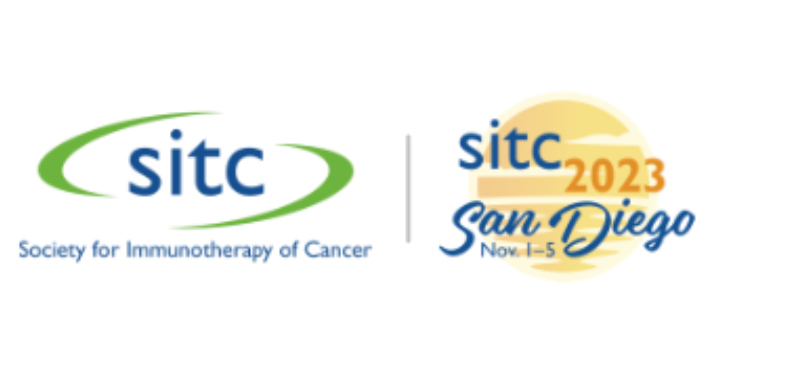
November 2023
Click on poster title to view each poster.
Spatial immunophenotyping of longitudinal metastatic melanoma specimens to identify biomarkers of response and resistance to combination anti LAG 3 + anti PD 1 based immunotherapies
Tuba N. Gide, Ella McCutcheon, Nigel Maher, Yizhe Mao, Ping Shang, Alexander M. Menzies, Ines Pires da Silva, James S. Wilmott, Richard A. Scolyer, Georgina V. Long
- To assess the spatial immune profiles associated with response and resistance to combined anti LAG 3 and anti PD 1 based immunotherapy in patients with metastatic melanoma
- To evaluate the changes in immune populations between baseline, early during treatment and progression tumour biopsies.

October 2023
Click on poster title to view each poster.
Anti-PD-1 (PD1) monotherapy or in combination with anti-CTLA-4 for metastatic melanoma patients with liver metastases.
Ines Pires da Silva, Isabel Li, Selma Ugurel, Patricio Serra-Bellver, Avanti Andhale, Hannah Burnette, Francisco Aya, Jordan W. Conway, Matteo S. Carlino, Alexander A. Menzies, Michael Weichenthal, Peter Mohr, Ralf Gutzmer, Ana M. Arance, Douglas B. Johnson, Paul Lorigan, Dirk Schadendorf, Serigne N. Lo, Georgina V. Long
In patients with melanoma liver metastases, we sought to:
-Determine objective response rate (ORR), progression-free survival (PFS) and overall survival (OS) to PD1 vs IPI+PD1.
-Identify clinical factors associated with response and survival to PD1 +/- IPI
Single cell spatial features of in-transit melanoma associated with patient outcome to immunotherapy.
Xinyu Bai, Camelia Quek, Jiabao Tian, Ghamdan Al-Eryani, Kate Harvey, Ines Pires da Silva, Alexander M. Menzies, Alex Swarbrick, Georgina V. Long, Richard A. Scolyer, James S. Wilmott
Objectives:
-To deeply characterise the TME spatial features of ITM melanoma.
-To understand the features of primary and acquired resistance to anti-PD-based immunotherapies.
-To identify novel drug targets to circumvent these resistance.
Avelumab treatment for patients with metastatic Merkel cell carcinoma can be safely stopped after one year and a PET/CT confirmed complete response.
Lisanne P. Zijlker, Sonja Levy, Wendy Wolters, Johannes V. van Thienen, Alexander C.J. van Akkooi, Margot E.T. Tesselaar
This study aims to evaluate if avelumab treatment for mMCC can be safely stopped after 1 year of treatment and confirmed complete response (CR) by FDG-PET/CT imaging.

Click on poster title to view each poster.
A phase 2 study to determine the pathological response to neoadjuvant nivolumab & relatlimab in high risk stage II cutaneous melanoma (NeoReNi II)
M. Gonzalez, A.C.J. Van Akkooi, A.J. Spillane, S. Ch’ng, K.F. Shannon, J. Stretch, M.A. Rtshiladze, T. Pennington, R.P.M. Saw, A.M. Menzies, R.V. Rawson, L. Martin, P. Guitera, M.J. Gregorio, K. London, E. Hsiao, R. Kapoor, S. Lo1, R.A. Scolyer, G.V. Long
The aim of the NeoReNi II trial is to determine whether combination PD-1 blockade with nivolumab (nivo), plus lymphocyte-activation 3 (LAG3) checkpoint inhibition with relatnimab (rela), will achieve a high rate of pathological response and manageable toxicity in patients with stage II primary melanoma.
Risk of immune related adverse events (irAE) with immune checkpoint inhibitors (ICIs) in patients (pts) with family history of autoimmune disease.
Piyush Grover, Isabel Li, Lydia Warburton, Alexander M. Menzies, Georgina V. Long
Determine the incidence of family history of autoimmune diseases in cancer pts.
In pts with family history of autoimmune diseases treated with ICIs,
▪ Establish the incidence, type and morbidity of irAEs.
▪ Examine the association of family relatedness (first, second or third degree relative)
on frequency, type and severity of iRAEs.
Efficacy of adjuvant therapy in patients (pts) with AJCC v8 stage IIIA cutaneous melanoma.
Piyush Grover, Isabel Li, Anke M.J. Kuijpers, Firas Kreidieh, Andrew Williamson, Teresa Amaral, Florentia Dimitriou, Joanna Placzke, Kelly Olino, Maria Grazia Vitale, Philippe Saiag, Ralf Gutzmer, Clara Allayous, Roger Olofsson Bagge, Nethanel Asher, Tarek M. Meniawy, Aleigha R. Lawless, Lydia Warburton, Alexander M. Menzies, Georgina V. Long
Anti programmed death 1 (PD1) antibodies and BRAF/MEK targeted therapy (TT) are approved for adjuvant management of
stage III A-D melanoma. The risk-benefit ratio of adjuvant drug therapy in stage IIIA melanoma is unclear. We examined the risks and benefits of adjuvant drug therapy in pts with AJCC v8 stage IIIA melanoma.
Nature and management of melanoma recurrences following adjuvant anti-PD-1 (PD1) therapy
Rachel Woodford, Janet McKeown, Lotte Hoeijmakers, Joanna Mangana, Celeste Lebbe, Farzana Yasmin Zaman, Francisco Aya, John Marsiglio, Rachel S Goodman, Victoria Rayson, Joanna Placzke, Jolien Isabel Kessels, Egle Ramelyte, Waqas Haque, Isabella Wilson, Claudia Trojaniello, Rachel Roberts-Thomson, Caroline Robert, Georgina V. Long, Alexander M. Menzies
- To describe disease characteristics of patients recurring following adjuvant anti-PD-1 (PD1) therapy.
- To describe local and systemic management of recurrences, and the success of each as defined by survival endpoints of RFS, PFS, OS and tumor endpoints of ORR and DOR.
- To clarify the prognostic and predictive significance of recurrence intervals.
Phase III Study of Adjuvant Encorafenib Plus Binimetinib Versus Placebo In Fully Resected Stage IIB/C BRAFV600-Mutated Melanoma : COLUMBUS-AD Study Design
Alexander C. J. van Akkooi, Axel Hauschild, Georgina V. Long, Mario Mandala, Michal Kicinski, Anne-Sophie Govaerts, Isabelle Klauck, Monia Ouali, Paul C. Lorigan, Alexander M. M. Eggermont
- To evaluate the efficacy and safety of 12 months of encorafenib in combination with binimetinib in adjuvant setting of BRAFV600E/K-mutant stage IIB/C melanoma

April 2023
The association between melanoma liver metastases (mets) and the systemic anti tumor immune profile
Jordan W. Conway, Felix Marsh Wakefield, Kazi J Nahar, Serigne N.Lo, Ismael A. Vergara, Tuba N. Gide, Grace H.Attrill, Jorja Braden, Matteo S.Carlino, Robyn P.M. Saw, John F. Thompson, Andrew J. Spillane, Kerwin F. Shannon, Brindha Shivalingam, Alexander M. Menzies, Umaimainthan Palendira, James S. Wilmott, Georgina V. Long, Richard A. Scolyer, Inês Pires da Silva
To analyze circulating and local tumour (non liver) immune profiles of melanoma patients with, versus without, concurrent liver mets to elucidate the factors behind why patients with liver mets have worse outcomes overall.
Sites of metastases prior to systemic treatment influence progression patterns and survival in stage IV melanoma patients
Ismael A. Vergara, Serigne N. Lo, Isabel Li, Alexander M. Menzies, Matteo S. Carlino, Richard A. Scolyer, Georgina V. Long, Inês Pires da Silva
To investigate the association between sites of metastases at baseline and:
• sites of progression in patients who failed first-line anti-PD1 vs first line BRAF/MEK inhibitors (BRAF/MEKi),
• sites of progression in patients who failed first-line anti-PD1 with innate vs acquired resistance, and
• survival of all patients, from time of first line treatment to last follow-up.
Spatial organization of the tumor immune microenvironment (TIME) in primary and metastatic melanoma is associated with patient outcome
Grace H . Attrill, Eva R. Shteinman, Xinyu Bai, Felix Marsh-Wakefield, Camelia Quek, Umaimainthan Palendira, Ismael A. Vergara, Georgina V. Long, Richard A. Scolyer, James S. Wilmott
This project aims to:
1. Determine immunospatial patterns associated with patient outcome in primary melanoma
2. Develop a high-throughput cohort-wide workflow for tumor immunospatial analysis
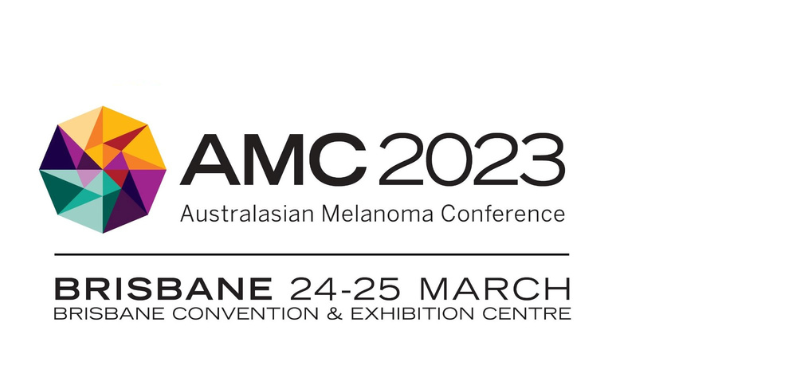
March 2022
Personal risk prediction and melanoma education: an overview of patients’ experience and clinicians’ perception during the risk assessment process
Bruna Gallo, Amelia K. Smit, Andrea L. Smith, Ivy Tan, David Espinoza, Bela I. Laginha, Pascale Guitera, Linda Martin, Anne E. Cust
- To investigate the communication between patients and clinicians regarding personal melanoma risk assessment, risk-tailored surveillance recommendations and preventive behavioural counselling conducted in the Melanoma Institute Australia (MIA) dermatology department.
Definitive treatment with PD1 blockade and radiation therapy of unresected primary desmoplastic melanoma of the nose
Caroline Asirvatham Gjorup, Ines Pires da Silva, Linda Martin, Jonathan Stretch, Richard Scolyer, Georgina V. Long, Angela Hong
- Two patients, aged 74 and 82, with primary desmoplastic melanoma of the nose were treated with definitive anti-PD1 checkpoint inhibition and radiation therapy. While both patients were not technically unresectable, partial rhinectomies are morbidly disfiguring procedures, which both patients declined.
Skin cancer related conditions managed in general practice in Australia, 2000 to 2016
Gillian Reyes-Marcelino, Kirstie McLoughlin, Christopher Harrison, Caroline G Watts, Yoon Jung Kang, Sanchia Aranda AM, Joanne F Aitken, Pascale Guitera, Anne E Cust
- Solar keratoses and keratinocyte cancers are the main skin cancer related conditions managed in general practice with melanoma being the least managed. The types of skin problems encountered varied by age, gender, patient residence, language background, socioeconomic status and card holder status.
Phase III Study of Adjuvant Encorafenib Plus Binimetinib Versus Placebo In Fully Resected Stage IIB/C BRAFV600-Mutated Melanoma: COLUMBUS-AD Study Design
Alexander C. J. van Akkooi, Axel Hauschild, Georgina V. Long, Mario Mandala, Michal Kicinski, Anne-Sophie Govaerts, Isabelle Klauck, Monia Ouali, Paul C. Lorigan, Alexander M. M. Eggermont
- The purpose of the COLUMBUS-AD (NCT05270044) study is to evaluate the efficacy and safety of 12 months of encorafenib in combination with binimetinib in the adjuvant setting of BRAF V600E/K mutant stage IIB/C melanoma versus the current standard of care (surveillance).
Epidermotropic metastatic melanoma: A diagnostic challenge in a 25 year old man
Mathew T, Maher N, Grover P, Scolyer RA, Vergara IA, Menzies A, Guitera P, Gouveia B, O’Sullivan NA, Nguyen R, Stewart DA, Martin L
- Epidermotropic metastatic melanoma is rare, and histopathology alone cannot reliably distinguish EDMM from
primary melanoma. This case demonstrates a multidisciplinary approach to distinguish EDMM from primary melanomas and its implications on staging, treatment and prognosis.
Stage IA Melanoma Follow up: Exploring the level of confidence of South Australian general practitioners in undertaking surveillance skin checks including considerations for shared care
Thomas Mathew, Damian J Ianno, Shireen Sidhu
- This study explores the level of confidence of South Australian (SA) GPs in undertaking FSEs, including factors that could support discussions around shared care between GPs and dermatology units for lower risk patients.
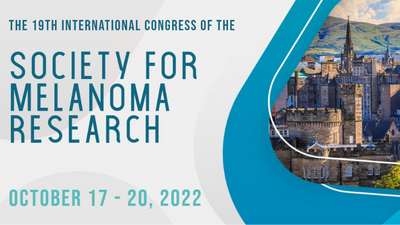
October 2022
Time-dependent prediction of development of melanoma brain metastases (MBM) from the start of BRAF/MEK inhibitors (BRAF/MEKi) or anti-PD-1(PD1)-based immunotherapy (IO)
Inês Pires da Silva, Ismael Vergara, Isabel Li, Serigne Lo, Matteo S. Carlino, Alexander M.
Menzies, Richard A. Scolyer, Georgina V. Long
- To predict the likelihood of metastatic patients developing melanoma brain metastases at the start of BRAF/MEKi or PD1-based immunotherapy, and at 3, 6, 9 and 12 months thereafter.
The hypoxic microenvironment at different sites of melanoma metastasis
Jordan W. Conway, Serigne N. Lo, Ismael A. Vergara, Tuba N. Gide, Jorja Braden, Matteo S. Carlino, Robyn P.M. Saw, John F. Thompson, Andrew J. Spillane, Kerwin F. Shannon, Brindha Shivalingam1, Alexander M. Menzies, James S. Wilmott, Georgina V. Long, Richard A. Scolyer, Inês Pires Da Silva
- To characterise and compare the hypoxic environment between different sites of metastasis
- To provide insight into the biology of melanoma metastases at different sites of disease and identify potential mechanisms of resistance to immune checkpoint inhibitors
Spatial analysis characterises cellular immunotypes of in-transit melanoma associated with response to anti-PD1-based checkpoint inhibitor immunotherapy
Xinyu Bai, Camelia Quek, Ines Silva, Alex Menzies, Georgina V. Long, Richard A. Scolyer, James S. Wilmott
- To deeply characterise the TME spatial features of ITM melanoma.
- To understand the features of primary and acquired resistance to anti-PD-based immunotherapies.
- To identify novel drug targets to circumvent these resistance mechanisms.
Clinical Features Associated with Outcomes and Biomarker Analysis of Dabrafenib plus Trametinib (DT) in Patients with BRAF-Mutant Melanoma Brain Metastases (MBMs)
Wilmott JS, Tawbi H, Engh JA, Amankulor N, Shivalingam B, Banerjee H, Vergara IA, Lee H, Johansson PA, Ferguson PM, Saiag P, Robert C, Grob JJ, Butterfield LH, Scolyer RA, Kirkwood JM, Long GV, Davies MA
- Investigating why the duration of response with DT was shorter in MBMs.
LAG-3 Expression and Outcome of Metastatic Melanoma Patients Treated with Combination Anti-LAG-3 + Anti-PD-1 Immunotherapies
T. N. Gide, E. Paver, Z. Yaseen, A. M. Menzies, J. S. Wilmott, R. A. Scolyer and G. V. Long
- To evaluate the association between baseline LAG-3 expression and clinical outcomes following anti-LAG-3 immunotherapy in metastatic melanoma.
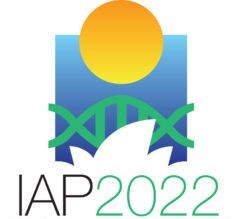
October 2022
NeoTrio Trial – Optimal neoadjuvant sequencing of anti-PD1 and BRAF targeting therapy in resectable BRAF mutant Stage III b/c/d Melanoma: Results of histopathological analysis.
J. Braden, A.J. Potter, E. Paver, R Rawson, A M. Menzies, M.S. Carlino, G. Au-Yeung, R.P.M. Saw, A.J. Spillane, K.F. Shannon, T. E. Pennington, S. Ch’ng, D. E. Gyorki, J. Howle, D. Daneshvar, J.S. Wilmott, S. E. Lo, I.P. Silva, R.A. Scolyer, G.V. Long
To characterise key histopathological changes with neoadjuvant targeted therapy, anti-PD-1 or combination and their association with pathological response.
October 2022
Molecular and Clinical Correlates of HER3 expression in Melanoma
E.R. Shteinman, I.A. Vergara, R.V. Rawson, S.N. Lo, N. Maeda, K. Koyama, I. Pires da Silva, G.V. Long, R.A. Scolyer, J.S. Wilmott, A.M. Menzies
To characterise the expression of HER3 in 187 melanoma biopsies across 3 TMA cohorts: the TCGA cutaneous melanoma cohort5(n = 70), the mucosal melanoma cohort (n = 38), and a cohort of cutaneous melanoma specimens taken prior to treatment with immune checkpoint blockade (ICB) therapy (pre-ICB cohort) (n = 79). HER3 expression (≥1+) was observed in 136.

September 2022
NeoPeLe: A Phase 2 Trial of Neoadjuvant Pembrolizumab Combined with Lenvatinib In Resectable Stage III Melanoma
Georgina V Long, Andrew Spillane, Thomas Pennington, Kerwin F Shannon, Jonathon R Stretch, Maria Gonzalez, Robyn PM Saw, Serigne Lo, Richard A Scolyer, Alexander M Menzies
To determine the the pathological response rate to 6 weeks of neoadjuvant pembrolizumab plus lenvatinib, and to determine the RECIST and metabolic response at week 6, the relapse free survival and to evaluate the effects on tumour tissue and peripheral blood.
September 2022
Histopathological Analysis of Neoadjuvant Sequential or Combination Targeted Therapy (TT) and anti-PD-1; Combined Analysis of NeoTrio and NeoCombi Clinical Trials
J. Braden, A.J. Potter, E. Paver, R Rawson, A M. Menzies, M.S. Carlino, G. Au-Yeung, R.P.M. Saw, A.J. Spillane, K.F. Shannon, T. E. Pennington, S. Ch’ng, D. E. Gyorki, J. Howle, D. Daneshvar, J.S. Wilmott, S. E. Lo, I.P. Silva, R.A. Scolyer, G.V. Long
To characterise key histopathological changes with neoadjuvant targeted therapy (TT), anti-PD-1 or combination and their association with pathological response.
September 2022
805P: Predicting recurrence-free survival for patients with stage II melanoma –a validated tool to guide selection for adjuvant systemic therapy
Alexander HR Varey, Mary-Ann El Sharouni, Julie Simon, Jeffrey E. Gershenwald, Georgina V. Long, Richard A. Scolyer, John F. Thompson, Serigne N. Lo
To develop a user-friendly externally validated tool for predicting relapse free survival (RFS) and overall survival (OS) in stage II melanoma patients (with or without sentinel node biopsy).
September 2022
850P: A dynamic recurrence risk prediction tool for adjuvant therapy in stage III melanoma
Amelia M Taylor, Claire Galea, Isabel Li, Alexander HR Varey, Kerwin Shannon, Sydney Ch’ng, Robyn PM Saw, Thomas Pennington, Jonathan Stretch, Andrew Spillane, Alexander C J van Akkooi, Ines P da Silva, Matteo S Carlino, Richard A Scolyer, Georgina V Long, Serigne Lo, Alexander M Menzies
To develop a web app to guide discussions about risk of recurrence with or without therapy at baseline and during a patient’s treatment journey.
September 2022
809P: Outcomes of patients with resected stage III/IV acral or mucosal melanoma treated with adjuvant anti-PD-1 therapy
Sarah Jacques, Janet McKeown, Piyush Grover, Benjamin Park, Anne Zaremba, FlorentinaDimitriou, Mohamad Farid, Kenjiro Namikawa, Megan Mooradian, Joanna Placzke, Clare Allayous, InderjitMehmi, Danielle Depalo, Alexandre Wicky, Julia Schwarze, Yasuhiro Nakamura, SeverineRoy, Alex Menzies, SerigneLo, Matteo Carlino
Determine risk of recurrence of resected acral melanomas (AM) and mucosal melanomas (MM) following adjuvant anti-PD-1, and quantify the effect of adjuvant anti-PD-1 in AM and MM compared to a historical matched cohort.
September 2022
838P: Patterns of response/progressive disease and management following progressive disease with anti PD 1 therapy in patients with advanced cutaneous Squamous Cell Carcinoma
J. Mo, S. Bohne, C. Gaudy Marqueste, N. Della Marta , L. Festino, C. Chen, S. Lo, J. Park, P. Ascierto, R. Ladwa, W. Xu, J J. Grob, A. Hauschild. A. Menzies, GV. Long, M. Carlino, I. Pires da Silva
For advanced cutaneous Squamous Cell Carcinoma evaluate site specific patterns of response to anti PD-(L)1 and study the management following progression to anti PD-(L)1.
September 2022
824P: Patterns of response/progression and management following progressive disease with anti PD –(L)1 therapy in patients with advanced Merkel Cell Carcinoma
J. Mo, A. Zaremba, J. Inderjeeth , P. El Zenaity, A. Li, A. Wicky, N. Della Marta, C. Gaudy Marqueste, S. Bohne, L. Festino, C. Chen, S. Lo, A. Guminski, O. Michielin, W. Xu, C. Lebbe, S. Sandhu, L. Zimmer, M. Carlino, I. Pires da Silva
For Merkel Cell Carcinoma evaluate site specific patterns of response of to anti PD-(L)1 and study the management following progression to anti PD-(L)1.

June 2022
Neoadjuvant dabrafenib and trametinib (D+T) for stage III melanoma – long-term results from the NeoCombi trial
Alexander M Menzies, Robyn P M Saw, Serigne Lo, Maria Gonzalez, Sydney Ch’ng, Omgo E Nieweg, Kerwin F Shannon, Peter M Ferguson, Jenny Lee, Helen Rizos, Robert V Rawson, Jonathan R Stretch, John F Thompson, Louise Emmett, Rony Kapoor, Andrew J Spillane, Richard A Scolyer, Georgina V Long
A report of 5-year outcomes from the NeoCombi trial (NCT01972347), for patients with resectable stage III melanoma.
June 2022
A biomarker guided Bayesian response-adaptive phase II trial for metastatic melanoma – The Personalised Immunotherapy Platform (PIP) Trial Design
Serigne N. Lo, Tuba N. Gide, Maria Gonzalez, Ines P. da Silva, Alexander M. Menzies, Matteo S. Carlino, Richard A. Scolyer,
Stephane Heritier, James S. Wilmott, Georgina V. Long
To assess RECIST objective response rate (ORR) to 5 novel anti-PD-1 drug combinations as first and subsequent line therapy.
June 2022
Preferences for Adjuvant Immunotherapy in Patients with Resected Stage III Melanoma: A Discrete Choice Experiment (DCE)
Ann Livingstone, Alexander M Menzies, Kirsten Howard, Martin R Stockler, Rachael L Morton
A study to quantify stage III resected melanoma patient preferences and trade-offs for adjuvant immunotherapy.
June 2022
Efficacy and safety of “second adjuvant” therapy with BRAF/MEK inhibitors after resection of recurrent melanoma following adjuvant PD-1-based immunotherapy
Amelia M. Taylor, Claire Galea, Serigne N. Lo, Florentia Dimitriou, Sarah Jacques, Clara Allayous, Hui-Ling Yeoh, Julia M. Ressler, Katharina C. Kähler, Lucia Festino, Julia K. Schwarze, Alexandre M. Wicky, Joanna Placzke, Douglas B. Johnson, Lisa Zimmer, Celeste Lebbe, Reinhard Dummer, Matteo S. Carlino, Georgina V. Long, Alexander M. Menzies
A study to explore the efficacy and safety of ‘second adjuvant’ BRAF/MEKiin BRAFV600 patients who recurred despite adjuvant immunotherapy.
June 2022
VEGF inhibitors (VEGFi) activity in liver metastases (mets) regardless of primary cancer type – meta-analysis and systematic review
Inês Pires da Silva, Serigne Lo, Jordan Conway, Richard Scolyer, Matteo S. Carlino, Alexander M. Menzies, Georgina V. Long
A study to assess the efficacy of VEGFi in liver metastases utilizing randomized-controlled clinical trials (RCTs) testing the efficacy of VEGFi, regardless of primary cancer site.
June 2022
Management of infliximab refractory immune checkpoint inhibitor gastrointestinal toxicity – A multicentre case series
Harvey, C; Nahar, K; Lo, S; Ahmed, T; Farag, S; Yousaf, N; Young, K; Tas, L; Eggink, A; Blank, C; Thomas, A; McQuade, J; Schilling, B; Johnson, DB; Martin-Huertas, R; Arance, A; Lee, J; Zimmer, L; Long, GV; Menzies, AM
A study to estimate the prevalence of patients with GI toxicity who are both steroid and IFX refractory (MIA cohort), describe the investigation and management IRIGItox, assess the efficacy of post IFX interventions and assess survival outcomes stratified by post IFX intervention.

8 April 2022
Molecular analysis finds excision margin width predictive of recurrence in acral melanoma
Grace H. Attrill, Teresa A. Bailey, Trina Lum, Jordan W. Conway, Georgina V. Long, James S. Wilmott, Richard A. Scolyer
This study aims to determine whether molecular markers can detect molecularly abnormal but histologically normal cells beyond the tumor margin, and whether such cells are associated with recurrence in acral melanoma.

16 Sept 2021
1042P: Anti-PD1 (PD1) monotherapy or in combination with ipilimumab (IPI) after BRAF/MEK inhibitors (BRAF/MEKi) in BRAF mutant metastatic melanoma (MM) patients (pts) (PDF)
Ines Pires da Silva, Danny Zakria, Tasnia Ahmed, Claudia Trojaniello, Florentia Dimitriou, Clara Allayous, Camille Gerard, Lisa Zimmer, Serigne Lo, Olivier Michielin, Celeste Lebbe, Joanna Mangana, Paolo Ascierto, Douglas B. Johnson, Matteo S. Carlino, Alexander M. Menzies, Georgina V. Long
The AIMS of this study are:
1. To determine the efficacy (objective response rare [ORR], PFS and OS) and safety of PD1 vs IPI+PD1 after BRAF/MEKi.
2. To identify the subgroup of patients with >3 years OS with PD1+/-IPI after BRAF/MEKi.
16 Sept 2021
Efficacy of checkpoint inhibitors in acral melanoma (PDF)
Prachi Bhave, Tasnia Ahmed, Alexander Shoushtari, Anne Zaremba, Judith Versluis, Joanna Mangana, Michael Weichenthal, Lu Si, Thierry Lesimple, Caroline Robert, Claudia Trojaniello, Alexandre Wicky, Richard Heywood, Lena Tran, Kathleen Batty, Anna Stansfeld, Celeste Lebbe, Julia Katharina Schwarze, Meghan Mooradian, Matteo S Carlino
A study to examine the efficacy of combination checkpoint inhibitors (CPIs) in acral melanoma (AM) compared to single agent CPI, and determine if primary AM site influences patient outcomes.
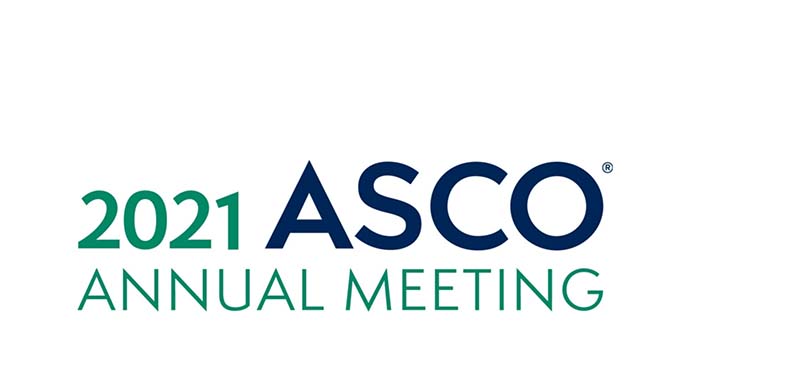
Patterns and management of progression on 1st line ipilimumab combined with anti-PD-1 (IPI+PD1) in metastatic melanoma (MM) patients (PDF)
Ines Pires da Silva, Judith M. Versluis, Tasnia Ahmed, Douglas Buckner Johnson, Jennifer Soon, Clara Allayous, Camille L. Gerard, Joanna Mangana, Oliver Klein, Lisa Zimmer, Caroline Robert, Maria Grazia Vitale, Hui-Ling Yeoh, Olivier Michielin, Celeste Lebbe, Shahneen K. Sandhu, Christian U. Blank, Matteo S. Carlino, Alexander M. Menzies, Georgina V. Long
Research from MIA’s Medical Oncologist Dr Ines Silva and her team focussed on patients whose disease progressed after first being treated with combination immunotherapy – drugs that stimulate immune cells to fight cancer. Although around half of these patients are still alive five years after starting treatment, the majority of patients will progress and may require further treatment.
IL 6 blockade for prophylaxis and management of immune related adverse events in cancer immunotherapy (PDF)
Florentia Dimitriou, Sabrina Hogan, Phil F. Cheng, Reinhard Dummer, Alexander M. Menzies, Georgina V. Long
Treatment of melanoma with immunotherapy can be lifesaving; however, it can also be complicated by significant side effects as the activated immune system cells may attack healthy cells as well. Immune cells communicate by producing small proteins, called ‘cytokines’, which co-ordinate the body’s response against inflammation. Medical Oncologist Dr Florentia Dimitriou and colleagues identified a cytokine, known as IL-6, which is increased in many inflammatory conditions.
Efficacy of Adjuvant Radiotherapy in Recurrent Melanoma after Adjuvant Immunotherapy (PDF)
Prachi Bhave, Angela Hong, Rebecca Johnson, Alexander M Menzies, Georgina V Long, Joanna Mangana, Douglas B Johnson, Zeynep Eroglu, Ozgecan Dulgar, Hui-Ling Yeoh, Andrew M Haydon, Georg Lodde, Elisabeth Livingstone, Adnan Khattak, Katharina Kahler, Axel Hauschild, Wei Wang, Matteo S Carlino
In an era where immunotherapy is now often given to reduce recurrence after surgery, Medical Oncologist Dr Prachi Bhave and colleagues at MIA investigated whether adjuvant radiotherapy is still effective in reducing melanoma recurrence. The study found that radiotherapy significantly reduced the risk of melanoma returning in nearby lymph nodes, and therefore continues to have a role in some patients whose melanoma has returned despite receiving immunotherapy after surgery.
Management of resected stage III/IV melanoma with adjuvant immunotherapy (PDF)
Rebecca Johnson, Victoria Atkinson, Prachi Bhave, Alison M. Weppler, Geoffrey David Peters, Afaf Abed, Megan Lyle, Muhammad Adnan Khattak, Andrew Mark Haydon, Matteo S. Carlino, Shahneen Kaur Sandhu, Georgina V. Long, Alexander M. Menzies
Immunotherapy after surgery for Stage III melanoma has become the standard treatment approach. This research aimed to understand who is being treated with immunotherapy across Australia, how effective the treatment was, and the variety of treatment options that are implemented if the melanoma recurs.
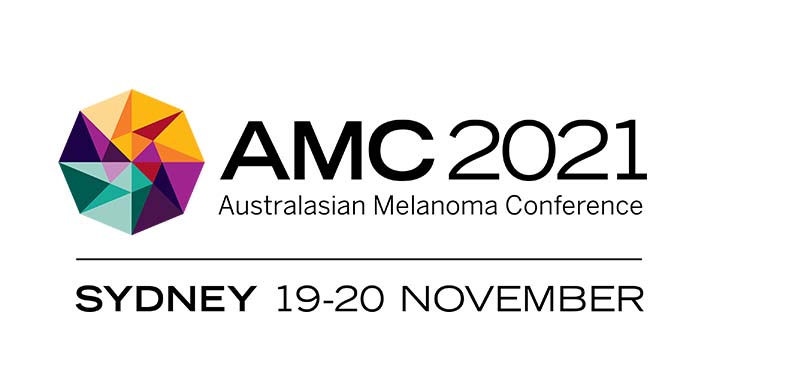
Poster title
Authors
Description